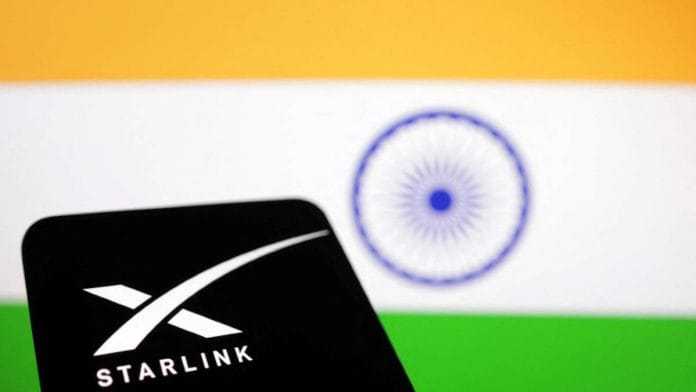New Delhi: The Indian National Space Promotion and Authorization Centre (IN-SPACe) has nodded yes to Elon Musk’s SpaceX subsidiary Starlink Satellite Communications Private Limited to operate their satellites in India.
The Gen1 breed (initial satellite dish) of Starlink has been authorised to offer high-speed internet across the country, subject to legal clearance from the government.
IN-SPACe, an autonomous agency in the department of space, Wednesday gave licence to Starlink to operate for five years or until the Gen1’s operational life, whichever comes first.
Starlink’s Gen1 network includes around 4,000 satellites that orbit the Earth at altitudes between 540 and 570 kilometres. The technology, when launched in India, will deliver a combined data capacity of 600 gigabytes per second. The plan is to amp up internet access, especially in rural areas.
After OneWeb and Reliance Jio, Starlink is the third company to get authorisation by IN-SPACe.
Until now, it was illegal to access Starlink satellites in India. But the IN-SPACe approval allows Starlink satellites to communicate with ground stations in India to improve communication across the country.
Venture capitalists have been expecting a boom in the space sector in India since February 2024, when the government encouraged 100 percent foreign direct investment in the sector.
“That just opened up the whole ecosystem for startups, (and) IN-SPACe anchored all the startups in space,” Manu Iyer, venture capitalist and co-founder of Bluehill Capital, a firm focussed on deep tech investment, told ThePrint.
Most satellite internet uses single satellites far from the Earth, causing slow connections and high delays, according to Starlink’s website. Starlink uses thousands of satellites much closer to the Earth, covering the whole planet. Because they are closer, the delay is lesser, it says.
“To give you global coverage, it’s like you need only 3,000 satellites in space, meaning in lower orbit. Starlink has around 8,000 satellites. So, they have much more than what is required,” Iyer added, appreciating the technology of Starlink.
The green flag to Starlink to operate its satellite constellation in India has, however, sparked concerns as well.
“I am not a fan of Starlink getting this kind of adoption. We don’t know what he (Musk) does … and our data is at risk as the channels of communication could be monitored,” said Raghav Asawa, founder, Applied Science Innovations (ASCI), a year-old start-up that is focused on utilising satellite technology to monitor climate-related mishaps.
The telecommunications market across India is the second largest in the world, with a subscriber base close to one billion as of 2023, according to Statista.
“India is already very well connected. There is good communication even in the mountain region. So, I don’t think it (Starlink’s communication) is needed,” Asawa added.
The massive number of satellites is also a concern for researchers as it adds to space debris and may affect astronomical observations.
The low-earth orbit where the satellites are mostly put up is already prone to space debris due to congested satellite traffic. This calls for international monitoring of space traffic, according to a report in Polytechnique Insights.
Amid the worries, the focus for start-up founders is on attracting more funds than on foreign companies deploying their solutions. Asawa pointed out that India has enough talent pool but lacks funds to build and compete against companies like SpaceX.
VCs like Iyer, too, realise the challenge in funding deep space tech as the returns take longer. “Today, the government is a lot more active in supporting satellites, supporting companies building in space. All of this will go a long way in helping to accelerate development,” Iyer added.
(Edited by Nida Fatima Siddiqui)
Also Read: Don’t auction satellite spectrum if you want good rural broadband, says chief of telco body IAFI






